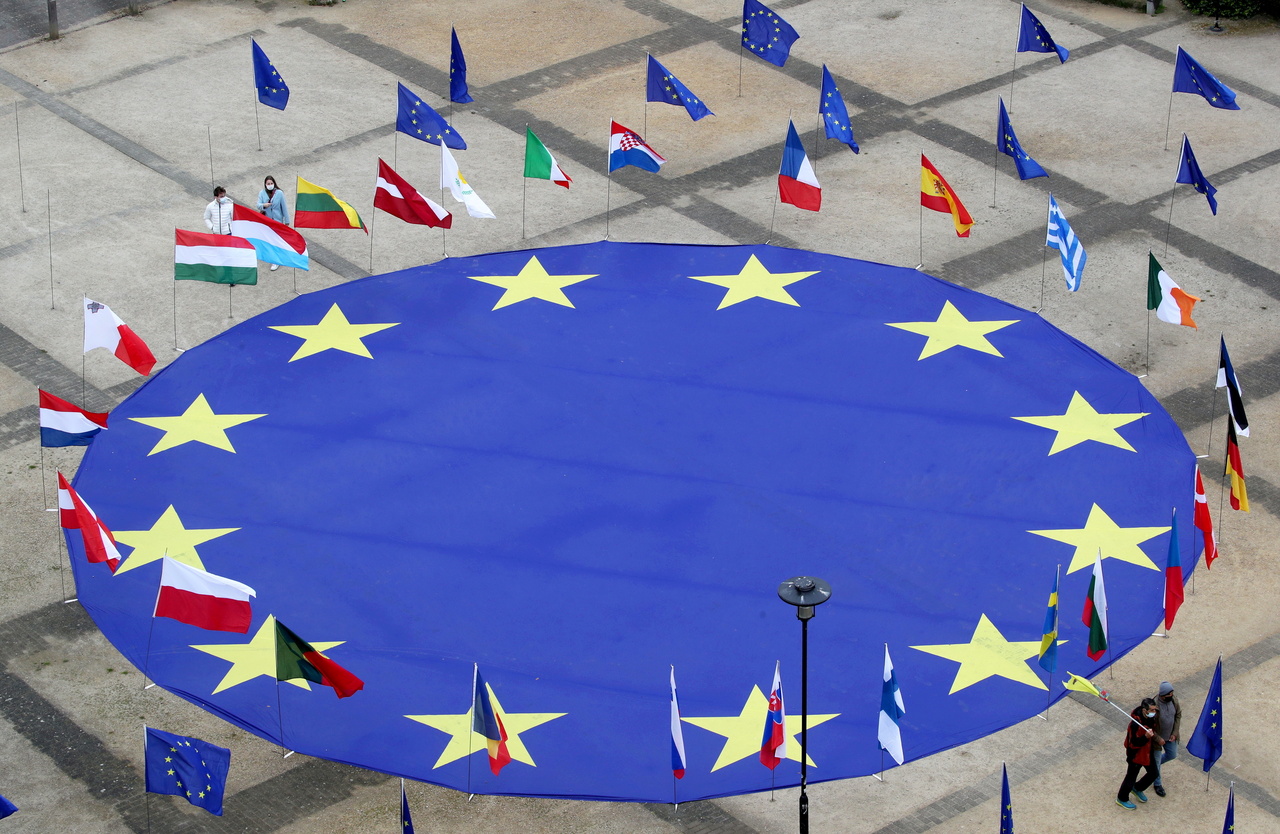EU to aim for rapid deployment force without US assets by 2025, document says
Sign up now: Get ST's newsletters delivered to your inbox

Not all 27 EU states would need to take part, although approval of any deployment would require consensus.
PHOTO: REUTERS
BRUSSELS (REUTERS) - The European Union is considering a joint military force of up to 5,000 troops by 2025 to intervene in a range of crises and without relying on the United States, according to a draft plan.
The "EU Rapid Deployment Capacity" should be made up of land, sea and air components that could be swopped in and out of any standing force, depending on the crisis, according to the confidential 28-page document dated Nov 9 and seen by Reuters.
EU foreign and defence ministers briefly debated the plan on Monday evening (Nov 15) in Brussels and are set to continue on Tuesday, aiming to settle on a final document by March next year.
Two decades after EU leaders first agreed to set up a 50,000 to 60,000-strong force but failed to make it operational, the draft strategy by the bloc's foreign policy chief Josep Borrell is the most concrete effort to create a standalone military force that does not rely on US assets.
"We need more rapidity, robustness and flexibility to undertake the full range of military crisis management tasks," said the draft, called the "Strategic Compass".
"We need to be able to respond to imminent threats or quickly react to a crisis situation, for example, a rescue and evacuation mission or a stabilisation operation in a hostile environment," the draft said.
Not all 27 EU states would need to take part, although approval of any deployment would require consensus.
The Strategic Compass is the closest thing the EU could have to a military doctrine and akin to US-led Nato's "Strategic Concept" that sets out alliance goals.
Crucially for the EU, Mr Borrell wants EU states to commit to "providing associated assets and the necessary strategic enablers".
That means developing the logistics, long-range air transport and command and control capabilities of the US that European allies in Nato have relied on.
The US has urged Europeans to invest in deployable troops and US President Joe Biden has said such moves would be complementary to Nato.
The EU has maintained battle groups of 1,500 troops since 2007 but they have never been used, despite efforts to deploy them in Chad and Libya.
Breaking up the battle groups into smaller units could make them more flexible and more deployable. Today, they are led by individual nations who may or may not have an interest in the crisis of the day, defence analysts have said.
"The use of modules will give us greater flexibility to tailor our force to the nature of the crisis... This is key if we want to overcome the obstacles that we have faced in the past," the draft strategic plan said.


